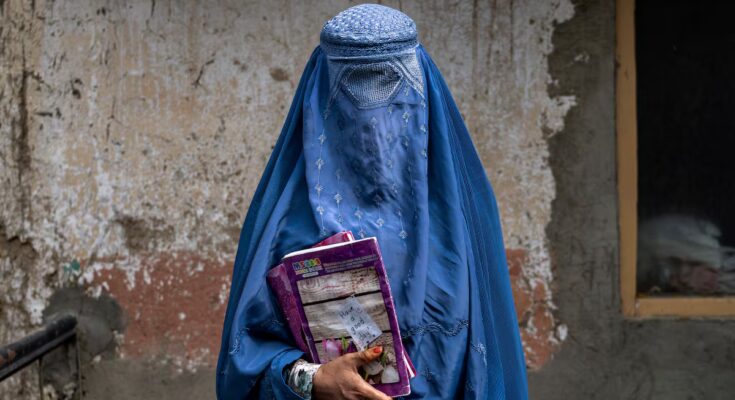My mother was born in a town on the banks of Navarre in 1942, a land of farmers. She was a restless girl, but when she turned 15 or 16 (I’m not sure of her exact age, she doesn’t remember it anymore) her parents decided that she should stop studying. One of the nuns who ran the school went to talk to my grandmother, but she couldn’t. My mother was raised as a housewife. And so his life went. Being who she was, she achieved excellence, despite her frustration, and raised her daughter to never be like her. “Study daughter, study. Be independent. Never depend on a man.” Thanks to women like her, women today have been able to think about our purpose in life and choose whether we want to stay at home or have a professional future outside. And this is how we raise our daughters. That’s why when I read the news from Afghanistan my blood runs cold. Women and girls imprisoned in their homes, trapped in clothes that often do not even allow their eyes to see, reduced to receptacles for generating children. It doesn’t happen in a hidden corner of the world. It happens in the global showcase, and we see it thanks to those few who fight so that their situation does not fall into oblivion. I can do little and some can do a lot. What I can do today is put this issue back on the agenda and ask our politicians to help the women and girls of Afghanistan. Their daughters might have been unfortunate enough to be born there.
Laura Urquizu. Barcelona
The horror of “human safaris”
I read a news story about “human safaris”. People who in the 1990s decided to go on holiday to Sarajevo to kill people. “Human safaris”: this word hadn’t even crossed my mind before yesterday. I was in Sarajevo four summers ago. They showed us exactly where snipers stopped to shoot civilians during the Bosnian war. I was horrified to see it, and now I am horrified and ashamed to think that sometimes the killer was a wealthy European who paid to spend his vacation killing in war. If I’m crying inconsolably, I don’t want to imagine recognizing a family member in the images that come out.
Eva Sierra Vázquez. Las Rozas (Madrid)
For those who will take care of us
As a society, we reject immigration – especially those with darker skin – and, at the same time, we depend on it to fill the jobs we don’t want but need. It is a selective advantage in which inconsistency coexists with old shades of racism that we pretend to have overcome. We pride ourselves on the values of progress and equality, but beneath that veneer the same servitude shines. We like to proclaim that we venerate the elderly, but this devotion has become a sentimental fairy tale. We denounce their abandonment, even as we offload their concerns onto those we barely recognize as equals. We boast of having broken the chains of vassalage, but we have only refined its forms. Under the guise of modernity, we perpetuate inequality with the face of a foreign woman. And while they take care of life, we continue to take care of our prejudices.
Aitor Joseba Idoyaga. Portugalete (Biscay)



